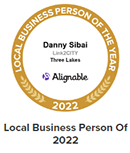LEARNING CENTER
- Why SEM
- What is SEM
- How do Search Engines Work
- What Is Spidering
- What is SEO
- Understanding SEO
- SE Friendly Site
- Myths & Facts
- Marketing Your Site
- Search Engine Optimization Tools
- Why use SEO Firm
- Choosing SEO Firm
- Prospecting / Sales
- Google Business
- Local Scan
- Website Audit
- Competitive Audit
- SEO Audit Tool
- Technology Upgrade
- Monthly Checkup Digital Strategy
- Google Marketing Grant for Business Websites
- Valentine Specials
- Marketing grant for Audit & Fixes
- 14 Days Transformation
- Annual Audit
Search Engine Friendly Web Site
Here we will discuss how to build a search engine friendly site.
The first steps in understanding how to build a search engine friendly site is that a search engine friendly site is not search engine optimized. These two concepts require separate skill sets and generally different professionals.
Build for your visitors first, and search engines second.
Why? If your site is easy to navigate, intuitive and interesting for your human visitors, it will be easy for the search engines to crawl and index.
Do not use drop-down menus for your navigation.
Search engines and people using screen readers will not be able to find those pages in the drop-downs. If you must use drop-downs, ensure there are accompanying text links on the page.
Do not build your website in Flash.
Search engines cannot read the content in Flash movies and neither can people using screen readers. If you must have a Flash site, build a second HTML site for the search engines and disabled visitors. Make sure that you instruct the robots to only index your HTML site using your Robots.txt file.
Have an SEO consultant on board from the start.
They will ensure that your web development process is as search engine friendly as possible. Having an SEO professional work on your project from the start will also reduce post-production costs to make the site search engine friendly.
Go easy on images.
Just like Flash, the search engines cannot read the content of images. It is best to describe your content in text as much as possible.
Search engines and visitors like fresh content.
Ensure you have an area on your website devoted to this. New content gives both the search engines and your visitors a reason to keep coming back!
Search engines and people navigate through the web and your site via links.
Don’t neglect this important part of building a website. Ensure you have at least a text-based site map and generously link to other relevant areas of your site. If you can use your important keywords, even betters.
Do not use dynamic URLs (include variable IDs etc.) on pages that you want to be indexed.
Keep it simple and the search engines will reward you.
Avoid using JavaScript in your header tags and reference it externally when necessary.
Search engines still have trouble reading this kind of code and may miss important information if they get tangled up in unreadable code.
Try to keep all of your important pages in the top levels of your site.
Just as you don’t want your visitors to travel too far to find the information they want, the spiders don’t want to do it either.
To learn more about an Internet Solution that really works for your business, use the form on “Contact Us” page to secure a free one-on-one consultation session- to help your business gain full benefit from a web presence.






























